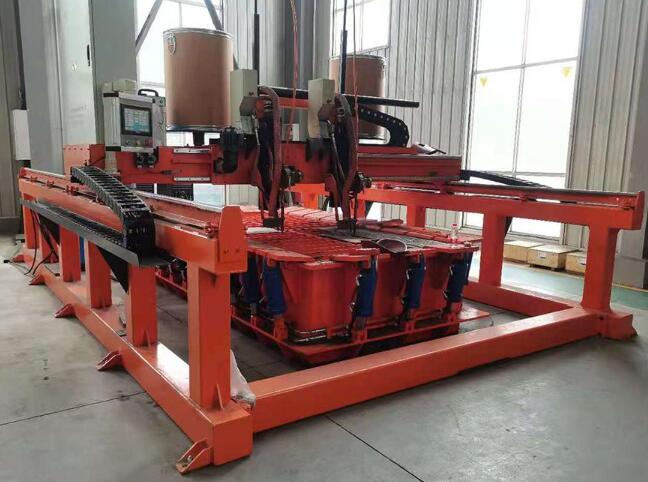Purchasing a hardfacing machine is a significant investment for any industrial operation. Whether you're considering the machine for rebuilding worn-out parts or extending the lifespan of equipment, choosing the right hardfacing machine is crucial. In this comprehensive buyer's guide, we break down the key factors to consider to ensure you make an informed decision.

Before diving into the selection process, it's essential to understand what hardfacing is. Hardfacing involves applying a wear-resistant layer to a metal surface, enhancing its durability and resistance to abrasion. The hardfacing process typically involves welding, and the choice of a suitable hardfacing machine is pivotal for achieving high-quality results.
2.1 Manual Hardfacing Machines
Manual hardfacing machines require skilled operators to control the welding process manually. These machines are suitable for smaller operations with specific hardfacing needs. They offer flexibility but may have a steeper learning curve.
2.2 Semi-Automatic Hardfacing Machines
Semi-automatic machines provide a balance between manual control and automation. They are user-friendly and suitable for a variety of applications. With features like adjustable parameters, these machines are ideal for projects of moderate complexity.
2.3 Fully Automatic Hardfacing Machines
Fully automatic machines are designed for large-scale industrial applications. These machines offer high precision and efficiency, reducing the need for manual intervention. They are capable of handling continuous and repetitive hardfacing tasks with minimal operator involvement.
The type of workpiece and the materials involved play a crucial role in selecting the right hardfacing machine. Different machines are designed to handle specific materials, thicknesses, and geometries. Ensure that the machine you choose aligns with the requirements of your intended applications.
The welding parameters and control features of a hardfacing machine determine the quality and consistency of the hardfacing application. Look for machines with adjustable parameters such as voltage, current, and travel speed. Additionally, consider features like waveform control and pulse settings for precise and efficient hardfacing.
A hardfacing machine's reliability is closely tied to its ease of maintenance. Opt for machines with accessible components and clear maintenance instructions. Regular maintenance ensures the longevity and consistent performance of the machine.
Safety is paramount in any industrial setting. When selecting a hardfacing machine, prioritize those with robust safety features. Look for machines with built-in safety mechanisms, emergency stop buttons, and user-friendly interfaces that promote safe operation.
Choosing a reputable supplier is as important as selecting the right machine. Research suppliers thoroughly, considering factors such as industry experience, customer reviews, and the range of products and services offered. A reliable supplier will provide ongoing support and assistance, ensuring a smooth purchasing process and effective machine operation.
Investing in a hardfacing machine is a strategic decision that can significantly impact the efficiency and cost-effectiveness of your industrial operations. By understanding the different types of hardfacing machines, evaluating compatibility with workpieces, considering welding parameters, prioritizing ease of maintenance, and researching supplier reputations, you can make an informed choice that aligns with your specific needs.
If you have any questions or need guidance in purchasing a hardfacing machine, feel free to contact us. As a trusted hardfacing machine supplier, we are dedicated to providing expert advice and top-quality machines to meet the unique requirements of your industrial applications. Make your hardfacing process more efficient and effective with the right machine from a reliable supplier.
Copyright © Jinhua (Qingdao) Hardfacing Technology Co., Ltd. All Rights Reserved |
Sitemap
| Technical Support:
